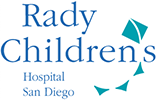Chickenpox
What Is Chickenpox?
Chickenpox is caused by a virus called varicella-zoster. People who get the virus have:
- a fever
- a rash of spots that look like blisters
They also might get a runny nose, cough, and stomachache.
Thanks to the chickenpox vaccine, kids don't get chickenpox as much as they once did.
What Are the Signs of Chickenpox?
Chickenpox may start out seeming like a cold: You might have a runny or stuffy nose, sneezing, and a cough.
But 1–2 days later, the rash begins, often in bunches of spots on the chest and face. From there it can spread out quickly over the entire body — sometimes the rash is even in a person's ears and mouth.
You've probably heard that chickenpox is itchy. It's true! The chickenpox blisters are small and sit on an area of red skin that can be anywhere from the size of a pencil eraser to the size of a dime.
At first, the rash looks like pinkish dots that quickly develop a small blister on top (a blister is a bump on your skin that fills up with fluid). After about 24–48 hours, the fluid in the blisters gets cloudy and the blisters begin to crust over.
Chickenpox blisters show up in waves. So after some begin to crust over, a new group of spots might appear. It usually takes 10–14 days for all the blisters to be scabbed over and then a person is no longer contagious.
How Does Chickenpox Spread?
Chickenpox is contagious, meaning that somebody who has it can easily spread it to other people. Someone with chickenpox is most contagious during the first 2–5 days of being sick. That's usually about 1–2 days before the rash shows up. So they could spread chickenpox without even knowing it!
People with chickenpox can pass it to others by coughing or sneezing, when tiny drops come out of their mouth and nose. These drops are full of the chickenpox virus. It's easy for other people to breathe in these drops or get them on their hands. Before you know it, the chickenpox virus has infected someone new.
Itchy-Itchy, Scratchy-Scratchy
Chickenpox blisters itch, but you shouldn't scratch them. Scratching them can tear your skin and leave scars. Scratching also can let germs in, and the blisters could get infected.
These tips can help you feel less itchy:
- Keep cool because heat and sweat will make you itch more. You might want to put a lukewarm washcloth on the really bad areas.
- Trim your fingernails, so if you do scratch, you won't tear your skin.
- Soak in a lukewarm bath. Adding some oatmealto your bath water can help relieve the itching.
- Have your mom or dad help you apply calamine lotion, which soothes itching.
If your fever goes higher and an area of your skin gets really red, warm, and painful, tell an adult right away. You'll need to see a doctor because you could have an infection.
How Can I Feel Better?
While you have the chickenpox, a pain reliever like acetaminophenmight help you feel better, but let your parents help you with this. Do not take aspirin because it can cause a rare but serious illness in kids called Reye syndrome. Medicines and creams that may stop the itch can also help.
It doesn't usually happen, but let a parent know if you feel especially bad. Sometimes, chickenpox leads to other, more serious illnesses.
Most kids don't have any major problems and get better in a week or two. And when all the blisters have scabs, you're not contagious anymore and you can go back to school! In a few days, the scabs will fall off. A kid who gets chickenpox is unlikely to ever get it again.
Get a Shot, Avoid the Dots!
Not long ago, millions of people got chickenpox each year in the United States. But now that kids get the vaccine, fewer and fewer people get chickenpox.
Kids get the chickenpox vaccine as 2 shots:
- a first shot when they're 12–15 months old
- a booster shot when they're 4–6 years old
But kids can get vaccinated when they're older too. Ask your mom or dad if you've had your shots. You'll be glad that you did if chickenpox starts making its way around your school!

© 1995-2025 The Nemours Foundation. KidsHealth® is a registered trademark of The Nemours Foundation. All rights reserved.
Images sourced by The Nemours Foundation and Getty Images.
